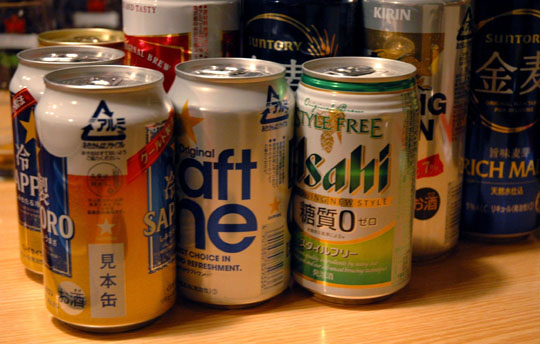There's a good reason that beer-makers use barley as a base ingredient. Fermentation only works on sugars, and grains don't contain any. But when a grain gets moist, it germinates, and its sprout contains an enzyme that converts starch into sugar. Some grains have tough husks, others sprout too meekly, but barley is the Goldilocks ingredient, just right for malting.
And just right for taxing. The government takes ¥77 from the sale of every 350-ml can of beer, which it defines as a brew fermented from at least 67-percent malted grains. Back in 1994, Suntory pioneered the tax-skirting quasi-beer market with a 65-percent malt brew called Hop's Draft, categorized as happoshu (sparkling spirits), and Japan's brewers and taxmen have been toying with each other ever since, hiking levies and lowering malt content.
Since 1996, the beeriest happoshu (50- to 67-percent malt) have been taxed as beer, which is why you won't find many of them. All the action these days is at the other end of the spectrum, with dai-san (third segment) drinks that contain little or no malt. Last fall, sales of dai-san beer overtook those of happoshu for the first time, and figures released earlier this month showed that while overall sales for Japan's brewers in February were 9.2 percent down on last year, dai-san shipments jumped 47.3 percent.

















With your current subscription plan you can comment on stories. However, before writing your first comment, please create a display name in the Profile section of your subscriber account page.